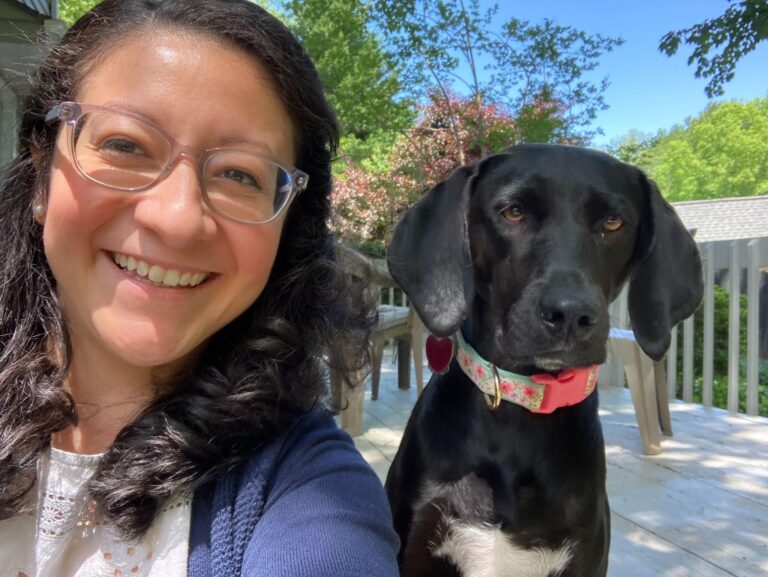Admissions Blog Posts
Interview with Dr. Veronica Flores
College can be an incredibly rewarding experience, but it can also be a challenging one. Between classes, professors, and adjusting to a new environment, there’s a lot to navigate. Classes are a fundamental part of the college experience. They provide you with the knowledge and skills you need to succeed in your chosen field. However, not all classes are created equal. Some classes may be more engaging than others, while some may require more effort. To get the most out of your classes, it is important to find the right balance between challenge and interest. You can do this by researching the class before signing up and talking to other students who have taken the class.
Professors are another crucial part of the college experience. They are your guides to the course material, and they can also serve as mentors and references for your future career. To make the most of your relationship with your professors, it’s important to establish a good rapport with them early on. You can do this by attending office hours, asking thoughtful questions in class, and engaging in discussions with your professor outside of class. This is why, today, I will introduce to you Dr. Veronica Flores, who is a Psychology professor at Furman. In this blog, we will be engaging with her on what her perspectives as a lecturer look like.

Kobby: Good morning, Professor. How are you doing today?
Dr. Flores: I am doing great. How about you, Kobby?
Kobby: I am excellent as well. Thank you for asking. What has your experience as a Psychology professor been like?
Dr. Flores: It’s been amazing! It’s an incredibly rewarding experience to teach, mentor, and advise students at Furman. I love sharing my love of Psychology and Neuroscience but I love it even more when students find, share, and learn about their own passions.
Kobby: What is your favorite class to teach?
Dr. Flores: I don’t think I can pick one! I teach 5 classes at Furman, and they are all unique and a blast to teach. If I had to pick, I’d say Sensation and Perception because in our lab we have the opportunity to do lots of hands-on experiments and activities like dissecting an eyeball or learning how to look at neurons under the microscope.
Kobby: What is that one fascinating aspect that you always look forward to as a lecturer?
Dr. Flores: One fascinating thing about teaching Psychology and Neuroscience is how much we do not know about the brain and behavior. It’s like trying to understand the limits of the universe! I think students are often surprised by how much we have yet to discover, but it’s amazing to see them think of all the wonderful ways to apply what we do know and develop insightful ways to try to answer the unknown!
Kobby: Can you tell us about some other interesting courses you teach?
Dr. Flores: All the courses I have the privilege to teach offer a different lens through which to study Psychology and Neuroscience. Here are some examples! In Introduction to Psychology, students are often surprised to learn about how many different areas of Psychology exist. In Sensation and Perception, we learn how the congenitally blind may one day learn how to echolocate like bats to navigate. In Animal Behavior we learn about the altruistic behaviors of ants and honey bees. In Multisensory Perception, we learn how we need both our eyes and ears to understand speech. And in Learning, we learn about how connections in the brain strengthen and how this is impacted by drug abuse.
Kobby: So quite recently, you were in the news for your research, Professor. Can you tell us more about it?
Dr. Flores: I study how the brain forms stronger connections during learning using a rodent model of taste learning. Humans and animals alike often learn to make food decisions by factoring in the consequences of their past eating experiences. However, my research has shown that even taste experiences that lack consequences (the meals that feel insignificant) can impact future food decisions and the brain! In our research, we hope to shed light on how taste experiences impact neural plasticity mechanisms that can ultimately lead to enhanced taste-related learning and memory; this information that is beneficial to helping us understand not only how the brain learns about tastes and food, but also how experience impacts the way we learn across the lifetime.
Kobby: Thank you very much for your time and commitment to raising the next set of world leaders.
Our interview with Psychology professor, Dr. Veronica Flores, shed light on the benefits of being a Furman student, the role of professors in supporting students’ academic journeys here at Furman, and the importance of classes in enhancing students’ learning experiences. Additionally, professors play a crucial role in providing guidance and mentorship, while our classes provide a structured learning environment to achieve academic goals. Overall, this interview emphasized the significance of Furman’s well-rounded education that extends beyond the classroom.
Kobby Frempong
Class of 2026
Biomedical Science Major